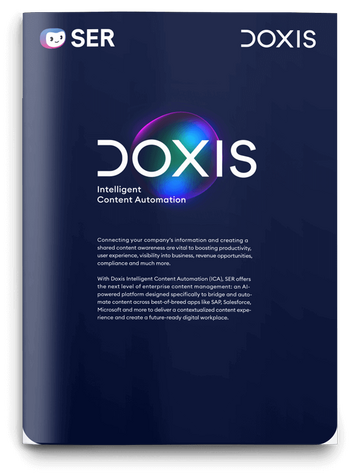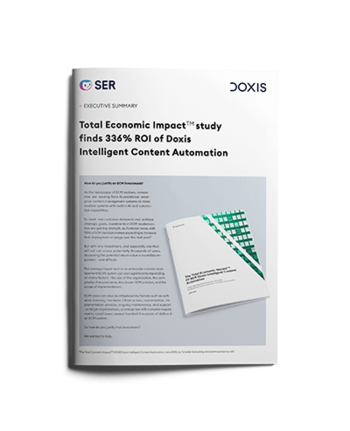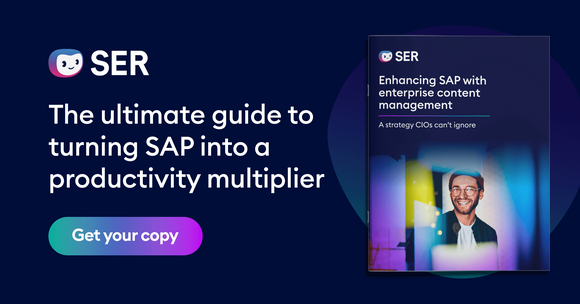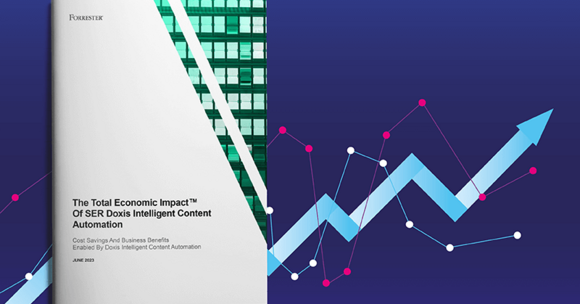SER Blog Customer Stories & Use Cases
Is it time to get set for Agentic AI?
Just as the business world has adapted to generative AI systems like ChatGPT—following earlier waves of analytic and machine learning AI—another transformation is already underway. AI is now evolving beyond automation into Agentic AI (Agent-centered Artificial Intelligence): systems that don’t merely follow pre-set rules but actively learn, adapt, and take action within defined boundaries, much like a trusted assistant.

AI Agents: why you need to get informed
AI Agents are being touted as the next big workplace transformation, serving as digital assistants that automate decision-making and boost productivity. For businesses, this could translate into smarter workflows, enhanced customer experiences, and more efficient operations—driven by AI that doesn’t just process information but actively learns, adapts, and takes action.
Are AI Agents real yet?
What is Agentic AI?
First, clarifying what distinguishes AI Agents from conventional software is essential. For a system to meet the definition of fully Agentic AI, it must be:
- Goal-oriented—It operates with a clear purpose, working toward specific objectives like answering queries or optimising workflows
- Autonomous—Within set constraints, it makes independent decisions rather than simply executing predefined commands
- Adaptive—Agentic AI learns from past interactions, refining its responses and actions over time
- Interactive—It actively engages with users, systems, and external environments through chat, APIs, or sensor inputs.
Moving from Passive to Proactive
These characteristics signal a shift from AI as a passive tool to AI as an active participant in decision-making and execution. Not all AI meets these strict criteria. In fact, the majority of AI applications in use today, from machine learning to LLMs to rule-based chatbots or process automation tools lack the true autonomy that Agent AI promises.
In reality, very few intelligent virtual agents or virtual assistants are out there right now which can go beyond executing predefined tasks to actively track their environments, adapt in real-time, and take meaningful initiative.

Doxis Intelligent Content Automation
With Doxis Intelligent Content Automation SER offers the next level of enterprise content management.
Read nowDifferent definitions of Agentic AI
Different vendors define ‘Agents’ in different ways. Notably, not all AI Agents meet the full criteria of autonomy, adaptability, and initiative. For instance, OpenAI described Agents as ‘automated systems that can independently accomplish tasks on behalf of users’ but also refers to them in developer documentation as LLMs with instructions and tools. OpenAI uses ‘assistants’ and ‘agents’ interchangeably, while Microsoft distinguishes between them—defining Agents as specialised AI-powered apps and Assistants as general-purpose tools. Anthropic takes a broader view, suggesting Agents can range from fully autonomous systems to structured workflows. Meanwhile, Salesforce, which has made the biggest investment in this area, defines six types of AI Agents, from basic reflex agents to more complex, utility-based models.
GenAI (generative AI) and Agentic AI
So, AI Agents are currently defined in a broad and evolving way, but over time a clearer consensus will emerge—much like how ‘Google it’ became synonymous with web search, even with multiple search engines still in use.
Yes. The key distinction is that Generative AI refers to computer systems powered by Large Language Models (LLMs)—software trained to understand and generate human-like text in response to prompts. As we’ve seen, an AI Agent is something that doesn’t just respond but actively takes action on your behalf, whether autonomously or in the background, without requiring constant user guidance.
Examples of Agentic AI use
In essence, we’re shifting from reactive to proactive computers—systems that understand the user’s goal, vision, and problem context. For example, a bank’s online chatbot using generative AI responds to a single query about your checking balance by processing your request and replying accordingly. In contrast, an Agentic AI system proactively gathers relevant information across all your accounts, analyses your transaction history, and suggests tailored solutions, minimising the effort required from the user.
That means AI Agents could be far more useful than generative AI alone. Unlike ChatGPT, which relies primarily on its own knowledge base, these agents can retrieve information from the wider Internet or corporate data, handle scheduling, generate documents, and monitor systems—expanding their capabilities beyond simple text generation.
Examples of AI Agents
Hey Doxi, how could AI help?
Some early examples of AI Agents include:
- Customer Support Agents handle inquiries, retrieve documentation, and assist users without human intervention (examples: Google Gemini, Amazon Bedrock, OpenAI ChatGPT)
- Document Processing Agents that extract, categorize, and summarize documents for compliance, finance, or HR teams (examples: Amazon Bedrock, Claude from Anthropic and Doxi from SER Group)
- Marketing Agents that generate ad copy, marketing emails, and even visual assets tailored to specific audience segments (examples: Google Vertex AI, OpenAI DALL-E).
Agents can form integrated applications
We can also consider Agentic AI systems—interlinked AI Agents working together to operate at scale:
- Customer Experience AI Agent Systems integrate chatbots, predictive analytics, and personalisation agents to enhance customer interactions (Example: Google Vertex AI)
- Compliance & Risk Management Agentic AI Systems combine document review and policy enforcement agents to support regulatory oversight (Examples: Amazon Bedrock, Anthropic Claude)
- Marketing Automation AI Agent Systems leverage segmentation, campaign management, and content generation agents to execute full-scale marketing initiatives (Examples: OpenAI, Google Vertex AI).
The future of Agentic AI
While SER is building toward an Agentic AI future ahead, the immediate priority is clear: helping businesses maximise the value of their business documents. The first step is ensuring that documents and invoices ‘talk’ to each other through Intelligent Business Process Automation.
The Doxis Intelligent Content Automation platform provides the strongest foundation for this journey toward Smart Content—a crucial prerequisite for the autonomous, problem-solving capabilities that businesses expect from Artificial Intelligence and Intelligent Agents.

Executive Summary: Total Economic Impact™ study
Long-time customer SEW-EURODRIVE achieved a 336% ROI over a three-year period and a payback in less than six months. We have summarized the study results for you.
Read nowDoxis: an Intelligent Content Assistant
Doxis Intelligent Content Automation is your AI-powered assistant that simplifies daily work by helping you handle Microsoft Word, PowerPoint, Outlook, and PDF documents. It understands your context, offers summaries, identifies relevant processes, and can trigger workflows. Supporting over 50 languages, Doxis can chat with you about documents, translate, and extract key information.
Doxis Intelligent Content Automation features:
- Smart Document Analysis
Doxis analyses content across formats, recognises context, and identifies related documents, workspaces, or processes in Doxis - Multilingual Support
Doxis understands 50+ languages and can translate or summarise documents in multiple partner or customer languages into your preferred language - Process Automation
When a document matches a known process like a job application, Doxis can suggest and trigger workflows automatically - Metadata & Storage
Use Doxis Intelligent Content Automation to suggest document types, tags, and storage locations, and even utilise content summaries as metadata - Chat & Summarise
Ask Doxis what a document is about—even handwritten ones. Also ask it to provide useful summaries and extract critical data like names, clauses, and numbers for easy filing and processing.
Doxis also works seamlessly in Doxis winCube and webCube, helping you work faster and smarter with every document.
SER and your Agentic AI future
SER is at the forefront of the shift from current AI to this next stage in the technology’s rapid and exciting evolution, Agentic AI. With advancements in AI-driven document automation and Intelligent Document Processing (IDP)—alongside the evolution of the SER tech stack to a full embrace of Smart Content—we see Agentic AI as a key way to make your use of Doxis even more productive.
The outcome: accelerated value delivery and a smooth path from AI ambition to operational impact.
Work with SER to shape the Agentic AI future that fits your organisation’s unique needs.
Agentic AI FAQs
The latest digitization trends, laws and guidelines, and helpful tips straight to your inbox: Subscribe to our newsletter.
How can we help you?
+49 (0) 30 498582-0Your message has reached us!
We appreciate your interest and will get back to you shortly.




